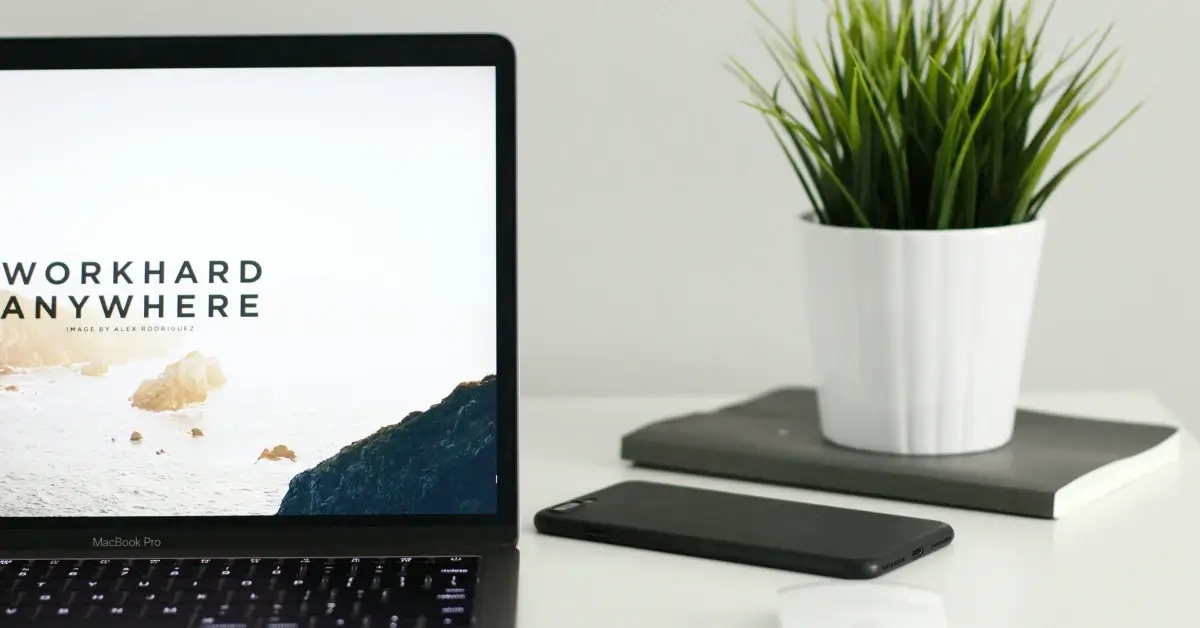In our fast-paced world, mastering productivity skills is not just an advantage, it’s the key. Learn how to boost you productivity skills and get a better
Understanding Productivity
When we manage to harness the right productivity skills, we set ourselves up for success. Being productive isn’t just about getting more done but doing so in a way that enhances our well-being and minimizes stress.
The Role of Focus and Distractions
In our quest for productivity, focus is the beacon that guides us to completion of tasks. Yet, distractions are ever-present, pulling our attention away. To combat this, we must create environments that limit disruptions and employ strategies that keep us centered on the task at hand. For instance, using a timer to work in focused bursts can significantly enhance concentration.
Productivity and Personal Life Balance
Achieving a harmony between our personal life and work commitments is crucial. It’s all too easy to let work seep into our home life, but setting clear boundaries ensures that both areas receive the attention they deserve. We must remember that personal well-being is the foundation of sustained motivation and productivity.
Effects of Stress on Productivity
Unchecked, stress can be the archenemy of productivity, leading to burnout and a decline in the quality of our work. Recognizing stress and taking proactive steps to manage it through relaxation techniques or short breaks can prevent it from undermining our efforts. Moreover, stress management should be a regular part of our routine, not just an afterthought.
Time Management Essentials
Mastering time management skills is like having the keys to a more organized life. We know how crucial it is to make every moment count. That’s why we’re diving straight into the core aspects of managing time effectively: planning, prioritizing, and utilizing tech tools. These essentials not only shape our schedules but also define the productivity of our days.
Planning and Scheduling
Constructing a schedule is the framework upon which we can build a solid plan for our days. It starts with mapping out our objectives on a calendar or planner to visualize the tasks ahead. By doing this, we establish a clear roadmap, guiding us toward our goals. The very act of planning can sharpen our focus, making us more attuned to our to-do list.

Prioritization Techniques
Prioritization is the steering wheel that guides us to our destination efficiently. We often employ the Pareto Principle to distinguish the 20% of tasks that will yield 80% of results. Another handy tool is the Eisenhower Matrix, which helps us decide on and delegate tasks based on their urgency and importance. Time spent on high-priority tasks means less time wasted on inconsequential activities.
Technological Tools for Time Management
In our digital age, we’re fortunate to have access to a multitude of apps and software designed to streamline our work. One such platform is Asana, a project management tool that allows us to bring our schedules, tasks, and communications into one place. This integration merges all facets of time management into a single, accessible location, ensuring we stay on top of our game.
Maximizing Energy and Health
We’ve all hit that mid-afternoon slump when our energy fades and the couch’s call seems irresistible. But it’s in our power to maximize energy and ensure our health doesn’t take the back seat. Let’s unpack how optimized rest, purposeful exercise, and smart mental energy strategies keep us firing on all cylinders.
Importance of Rest and Sleep
Sleep isn’t just downtime. It’s when our bodies repair, our brains consolidate memories, and energy reserves replenish. Consistent, quality sleep—aim for 7-9 hours—can make the difference between feeling sluggish and having the vigor to conquer our day. Key habits include a regular sleep schedule and a restful environment free from disruptions.
Role of Exercise and Nutrition
Exercise is the paradoxical energy booster; expend a little, gain a lot. Regular physical activity, be it a brisk walk or a full workout session, ramps up our endurance and stimulates the release of endorphins—those feel-good chemicals. Coupled with nutritional self-care, where meals are balanced and rich in fruits, vegetables, proteins, and whole grains, we equip our bodies with the fuel it needs for sustained energy.

Mental Energy Conservation Strategies
Harnessing and conserving our mental energy requires skillful juggling. Prioritize your tasks, and tackle the most demanding when your energy peaks. Techniques like mindfulness can provide a valuable reprieve, acting as a reset button for our cognitive resources. It’s important to recognize the signs of mental fatigue and respond proactively by stepping away or shifting focus to lower-stake activities.
Strategies to Improve Productivity
In our fast-paced world, we often find ourselves juggling multiple tasks, but it’s not just about working harder; it’s about working smarter. Let’s focus on tangible strategies that can rev up our productivity engine, banish procrastination, and help us manage our time like pros.
Overcoming Procrastination
We’ve all been there, watching the clock tick away as we delay starting a task. To combat this, we must prioritize tasks and set clear deadlines. Here’s a powerful tactic: break your work into smaller, manageable chunks. By doing so, we make tasks less daunting and more achievable. Start with the most critical task or the one you dread the most; this taps into our sense of accomplishment and fuels our motivation to tackle the next challenge on our list.
Adopting the Pomodoro Technique
Maximizing focus and preventing burnout can be achieved with the Pomodoro Technique. This involves working in concentrated bursts of 25 minutes, known as ‘Pomodoros’, followed by a 5-minute break. Rinse and repeat. This cadence helps us maintain a high level of productivity without falling prey to fatigue. After completing four Pomodoros, we deserve a longer break—say, 15 to 30 minutes—to recharge our mental batteries.

Leveraging Systems and Delegation
Why spread ourselves too thin when we can delegate to others? Developing systems allows us to streamline and automate repetitive tasks. Through delegation, we empower team members, enhancing overall productivity. Start by identifying tasks only we can do and delegate the rest. Clear instructions and trust in our team’s abilities are key to successful delegation. By optimizing our workload with these strategies, we ensure that we’re always firing on all cylinders.
Maintaining Productivity in Different Settings
We all strive to maintain our productivity no matter where we are, but the challenges vary greatly between the office, a home office, or a house full of energetic kids. Let’s explore techniques tailored to each setting to ensure our work thrives.
Workplace Productivity
In the workplace, the key to maintaining productivity involves structured schedules and clear goals. Taking regular breaks is essential: short, scheduled intervals away from the desk can prevent burnout and preserve physical energy. Try working in 90-minute sprints followed by a 15-minute break to recharge and refocus.
Productivity While Working from Home
When working from home, it’s tempting to provide an immediate response to every email or message. However, setting boundaries for uninterrupted work can enhance focus. Designate a specific area as your workspace and establish set work hours to mimic an office environment. Remember, occasional breaks are still necessary to stay sharp throughout the day.
Managing Productivity with Kids
Juggling work and kids? Set up a routine that aligns with your children’s schedule. Allocate tasks that require high concentration to times when the kids are occupied or napping. Don’t hesitate to include them in age-appropriate chores or activities to understand the value of work, all while you manage to keep your productivity on track.
Our Opionion
In our opinion, mastering the delicate balance between work responsibilities and parenting is a critical challenge that many of us face in today’s fast-paced world. Establishing a routine that complements our children’s schedules is not just about maintaining productivity; it’s about nurturing productivity skills that can serve us well in both personal and professional realms. By aligning our work tasks with the times when our children are engaged or napping, we are not only optimizing our work output but also enhancing our productivity skills by becoming more adept at time management and prioritization.
Incorporating our children into age-appropriate chores or activities is another strategy that we believe is instrumental in fostering productivity skills. This approach does not only introduce our children to the concept of responsibility and the value of work from a young age but also allows us to model productivity skills in action. As we delegate tasks and manage our time, we’re demonstrating practical applications of productivity skills that our children can learn from and emulate.
Furthermore, by assigning high-concentration tasks to moments of minimal distraction, we’re practicing and honing our productivity skills. This method teaches us to identify our peak productivity periods and leverage them effectively—a skill that is invaluable in any professional setting.
We advocate for the integration of these strategies not only as a means to manage our daily tasks but also as an opportunity to enhance our productivity skills. The dual focus on accomplishing work tasks and engaging our children in the process presents a unique opportunity to practice and refine these skills continuously.
FAQ
In our journey to unlock peak efficiency, we often encounter practical questions about productivity skills. Let’s dive into some common inquiries that can help us refine our approach to doing more in less time.
How can students enhance their productivity skills for academic success?
For students looking to boost academic performance, focusing on one task at a time can significantly enhance concentration and the quality of work, ultimately leading to better learning outcomes and efficiency in studying.
What are some examples of productivity skills in action?
Effective productivity skills manifest as setting clear goals, prioritizing tasks efficiently, and employing time management techniques to maximize the hours in a day, both at work and in personal life.
In what ways can productivity skills be applied in a business environment?
In business, applying productivity skills involves streamlining processes, measuring employee productivity, and fostering a culture where collaboration and focused effort are valued and rewarded.
What strategies can employees adopt to improve their productivity at work?
Employees can enhance their productivity by breaking down larger projects into smaller, more manageable tasks and utilizing tools and methods designed to track time spent on tasks, thus improving focus and efficiency.
What is your opinion on our picks of productivity skills? Let us know in the comments!





